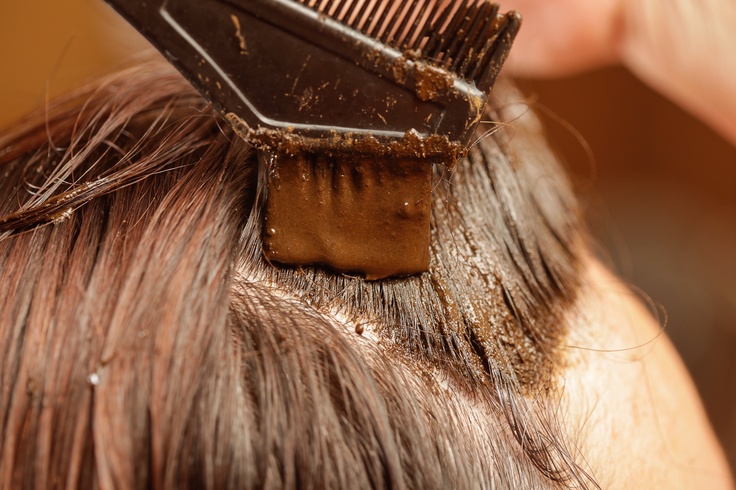Hair coloring is a trend that has been going on for centuries. In various cultures, such as the South Asian culture, it is common to use Henna as a die for coloring Your Grays. But lately, experts have been flagging various disadvantages of using Hannah on your hair.
Some suggest it could cause drawing of hair and even discoloration and various Other Side Effects that could have an elastic impact on the quality of your hair.
So, if you have been considering giving your hair some much-needed Henna makeover, we would recommend you first glance through all the disadvantages of Henna.
Henna is known as medhika in Sanskrit. This dye has been popular for both hair dying and as a temporary tattoo on your skin in Asian and Middle Eastern cultures. But how well is it fair to give you rich, stunning locks?
Let’s dive right into the various disadvantages of Henna for hair.
What is Henna?
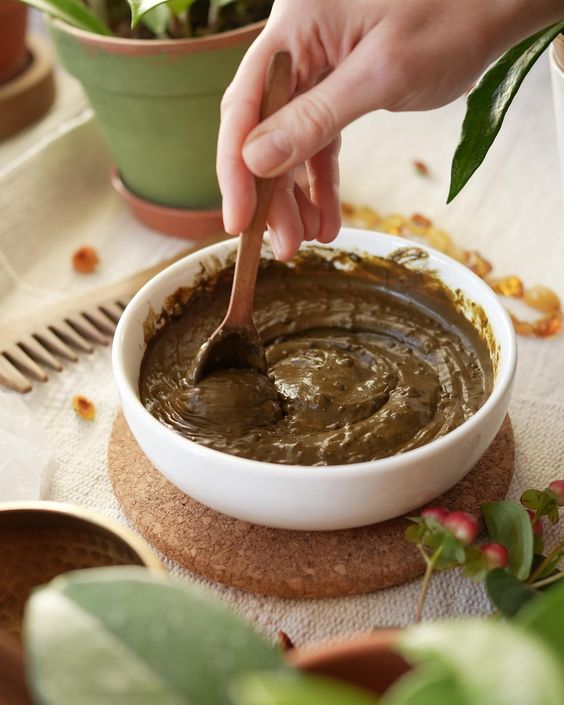
Henna is a powdered product that is derived from the Henna plant, scientific name Lawsonia inermis. Traditionally, Henna powder is created by using dried leaves of the plant and mixing them with other products, such as tannic liquids that are derived from tea and coffee. These talent liquids are known to give a dark color staining effect that is desirable for those looking for more natural ways of drying their hair.
In addition to its dying properties, this product is also known for its microbial and antibacterial. This product has a distinctive, lingering smell, which may be a deterrent for some looking to dye their hair using Henna.
Some also suggest its probable hair-boosting properties; however, there is an ongoing debate on this subject.
Some Disadvantages of Applying Henna on Your Hair
1. Uneven Coloring
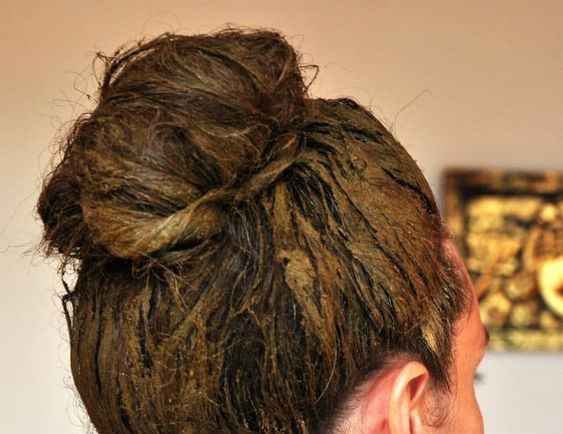
When you choose to apply Henna to your hair, your primary requirement is good natural hair color. But what happens when that primary purpose remains unsolved? With Henna, it is not uncommon for people to achieve a very botched, uneven coloring job.
One of the common reasons why hair color remains uneven is because
- You may not have applied it evenly in the first place – Did you know that applying Henna to your own hair isn’t as easy as you’d think? You may not reach the roots of the back of the head hair well. You may not cover all the strands when you do it yourself. You can either take help from someone who knows how to do this. Or you need to section your hair well and do it in manageable portions. Ensure you swipe the applicator brush in a way that covers the strands well.
- You may have left it at different times: If you start doing the left section of your hair, note the time approximately. When you start the right, note the time. Ensure you remove the Henna from your hair for each section around the same duration. If you leave the left hair for 10 minutes more than the right, the color will look different, thus having an uneven appearance.
- Henna mixing was not done properly: Mixing Henna is an important step in getting a good even hair color. If you have mixed the Henna and it still has a lumpy texture, then the concentration of the powder is uneven in certain areas, giving the discolored appearance. Ensure you mix it well until no lumps are there. It has to have a mud-like consistency for the best results.
- You used poor quality henna: Henna available in the market comes in various types and qualities. Ensure you only use a trusted henna supplier who has been licensed and verified to avoid any untoward incidents happening.
2. Tedious Process
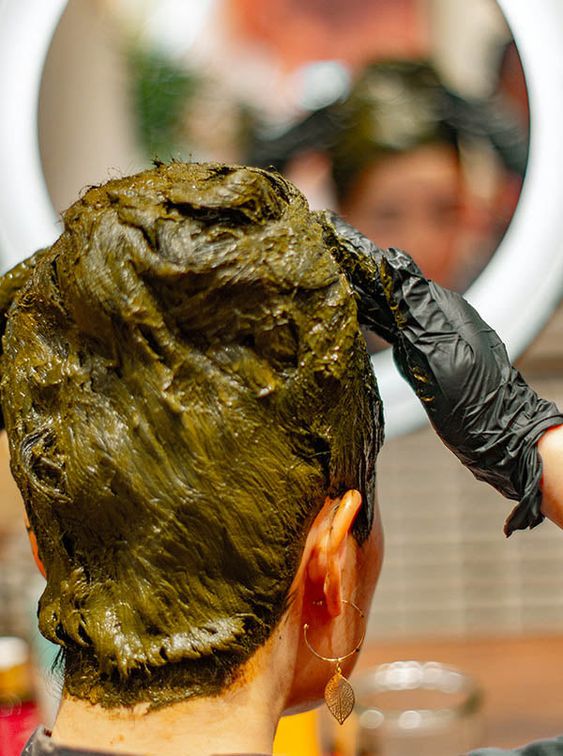
Did you know that one of the biggest Disadvantages of Applying a Henna to Hair is the prep and application process?
- Preparation: Henna mixing is a time-consuming process. You need to leave the mixture covered up for at least 8-12 hours beforehand for it to color your hair well.
- Application: Henna needs to be on hair for at least 4-6 hours for it to have a good color application on your hair. As compared to other chemical-based colors that need to be on your hair, only 20-40 mins per application, depending on your hair. Leaving the Henna on can be quite tiring and off-putting because of the consistency, smell, and general maintenance. You have to ensure it does not stain anything around you.
- Wash Off: Washing off the Henna of your hair can be messy and time-consuming. This is because you have to ensure that your hair does have any leftover henna. Complete removal of henna paste from the hair is extremely essential.
3. Drying Out
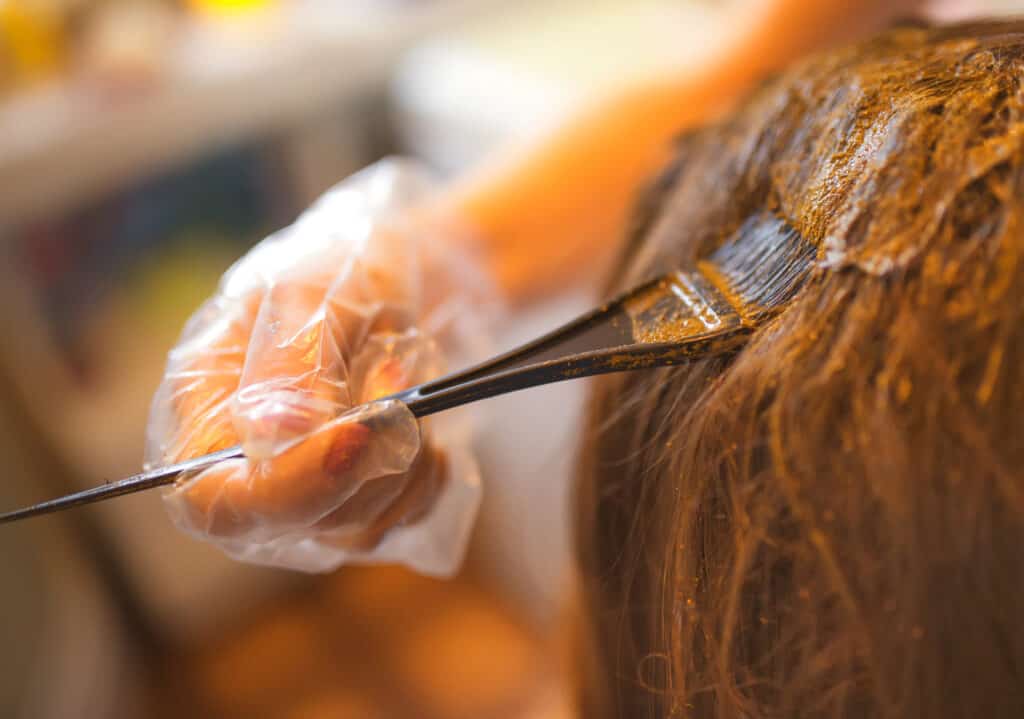
The debate about whether Henna moisturizer or dries your hair is an ongoing one. While some believe that Henna gives a shiny appearance, most people experience a drying-out effect. Again, it depends on how long you have left the Henna on your hair, the quality of the Henna you use, etc.
It is also a very subjective experience based on how your scalp and cuticles react to henna application. The lawsone precursors of the Henna have a clumping effect on your cuticles because they move the keratin layer. While it strengthens the hair, it does leave a very dry feeling in the hair.
Washing your hair properly is necessary because Henna can stick to the hair; in a bid to remove the Henna well, overwashing can also cause drying out the hair.
4. Color Correction Nightmare
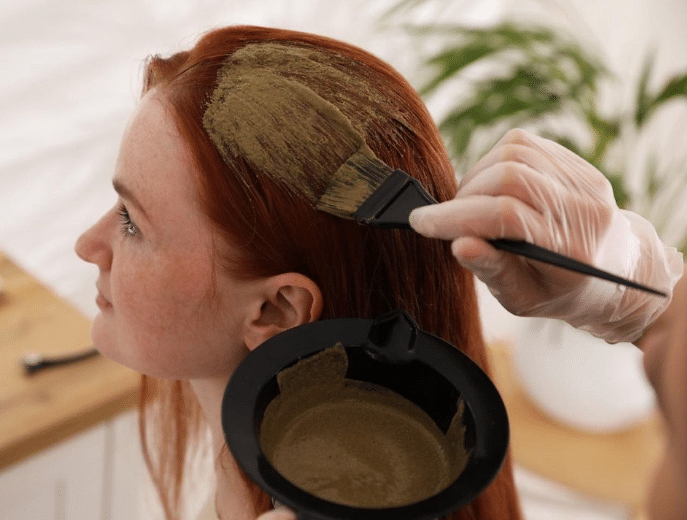
Because some henna brands are not reliable, they need to be dealt with with caution. The uneven henna correction can have almost no reliable color correction technique. It is difficult to undertake damage control when Henna is used for coloring. The metallic salts present in Henna can make it very difficult to manage the color, as it causes irreversible changes to your hair.
The only way you can correct it is to wait for some time until the dye settles, and only then can you use other conventional dyes to correct it. Because of the color penetration of Henna, it becomes extremely difficult for other commercial dyes to penetrate into the hair.
5. Hair Darkening
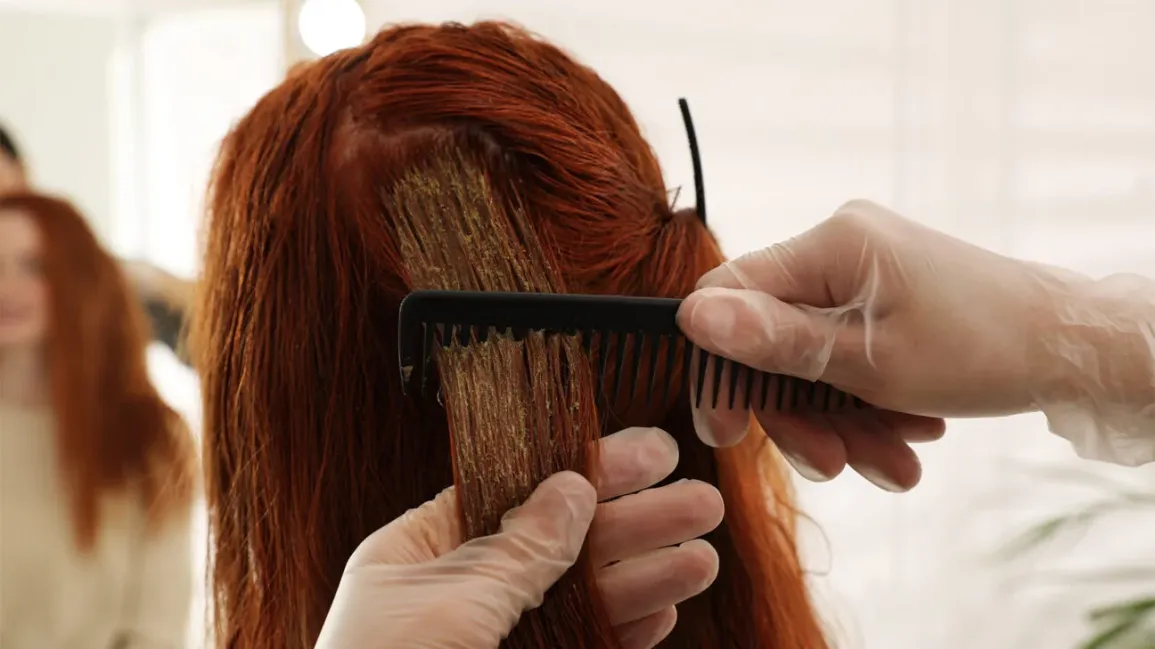
Did you know that Henna oxidizes over time? This means that with time, the color of your Henna will keep getting darker. Therefore, you must be aware that when you apply Henna, over time, a slight darkening effect is inevitable. Therefore, over time, if you have been consistently applying Henna, it becomes extremely difficult to come down to any other lighter shade without damaging your hair too much. In order to transition into a lighter shade later on, your hair will have to undergo a lot of treatment steps. And as we all know, the more you treat your hair, the more you are susceptible to damage.
6. A Smelly Affair
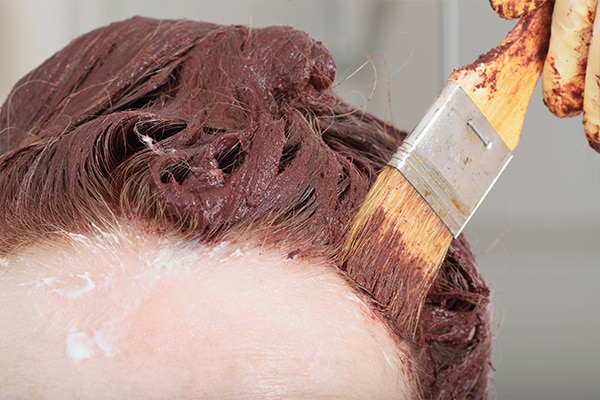
Henna can be quite stinky and smelly, especially if you aren’t familiar with the smell notes of Henna. It has quite a strong, pungent, lingering characteristic smell that lasts. Anyone and everyone around you will also get a distinctive smell. You can use essential oils such as jasmine and rosemary to overpower the strong henna smell and make it easier for you to work with Henna.
7. Curl Reduction
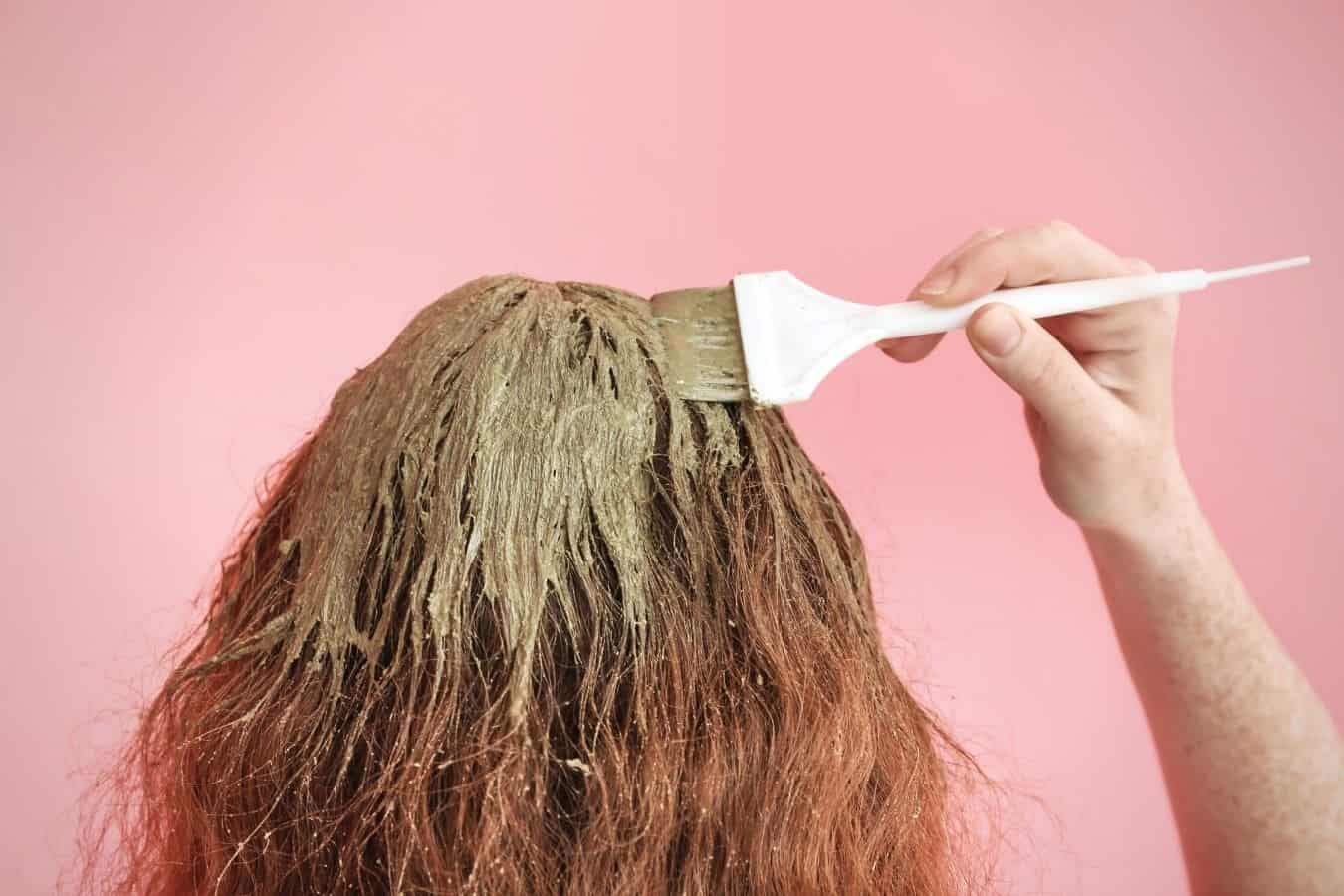
If you are a curly girl who loves your curls, you might want to reconsider the henna application. It has been observed that Henna has a negative impact on your curls. How this works is that Henna generally has the ability to strengthen your hair strands. It does so by binding to the hair keratin and reinforcing it. It strengthens the hair. However, this restructuring causes a loss of curls.
It is believed that using amla products before or after your henna application can have a slightly protective impact on curls. In addition, it also gives your hair some unnecessary frizz, which, let’s face it, no one particularly likes.
This is why you must avoid using Henna if you love your curls.
8. Limited Color Spectrum
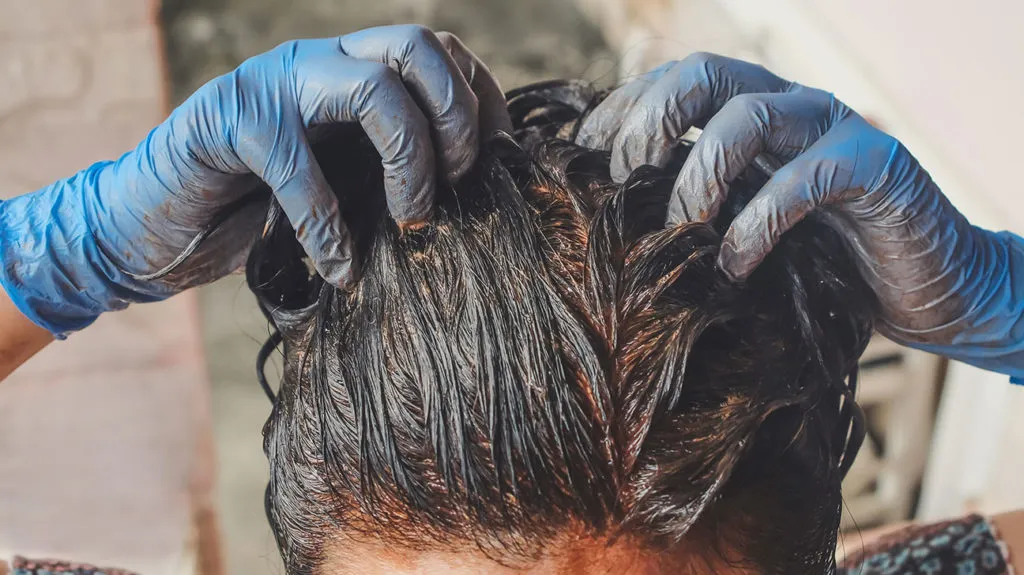
It is not rocket science that the color of Henna on your hair will depend upon your natural hair color. Will it look lighter, or will it look darker, depending on the color of your natural hair? However, besides that, Henna offers no way of having a spectrum of color. You will only get the brownish-orangish tinge of hair color. It works if you just wish to cover your greys and aren’t interested in c actually having unique hair colors. However, if you are someone who likes to experiment with colors, then Henna may not be the most lucrative option for you.
9. Unpredictability
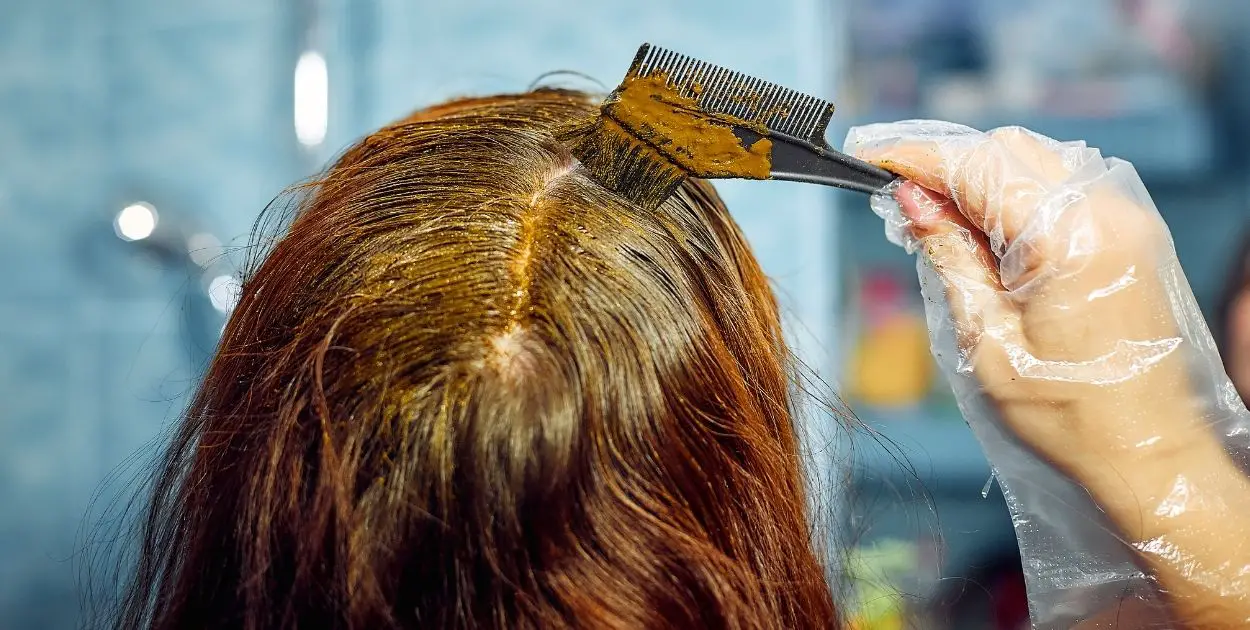
Be it color, hair texture, staining, or smell, all of this really depends on how Henna reacts to your hair. There is a level of unpredictability that comes with Henna, which makes it very difficult to repeat standard results. This is why not many haircare experts recommend practicing henna application. While Henna is an all-natural product, the benefits end just about there. If you are looking to have more control over the kind of color your hair color delivers, then Henna may not be a top choice of hair color.
10. As Messy as It Gets
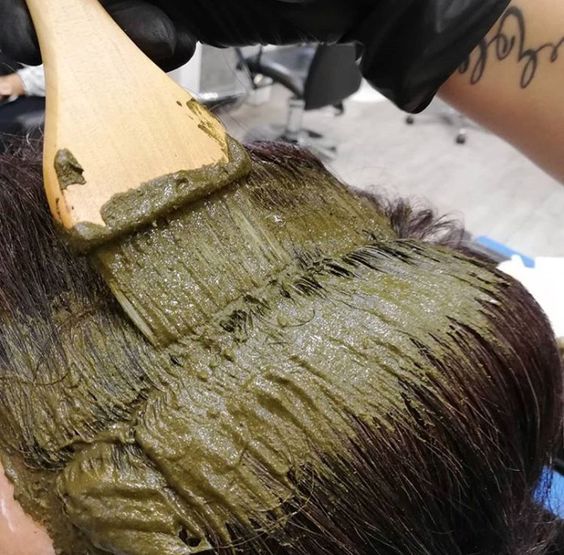
When considering Henna as a possible color application, people often forget or are blissfully unaware of the trail of the mess it leaves behind. Girls, it’s a whole affair! Getting your hands down and dirty when it comes to henna application is not a choice but the only option. Henna is a natural dye; it stains everything that comes in the way. You must be prepared to carry out this task carefully, with utmost caution, to avoid staining your upholstery.
It is advisable to get your old, ragged clothes out when you wish to color your hair. Set up your coloring station far away from your furniture, bedcovers, and cushions. Place waste cloth around you before starting out.
Another useful tip is to apply petroleum jelly on your neck, ears, skin, etc., to avoid the Henna from staining these areas.
11. Heat Styling May Affect the Color
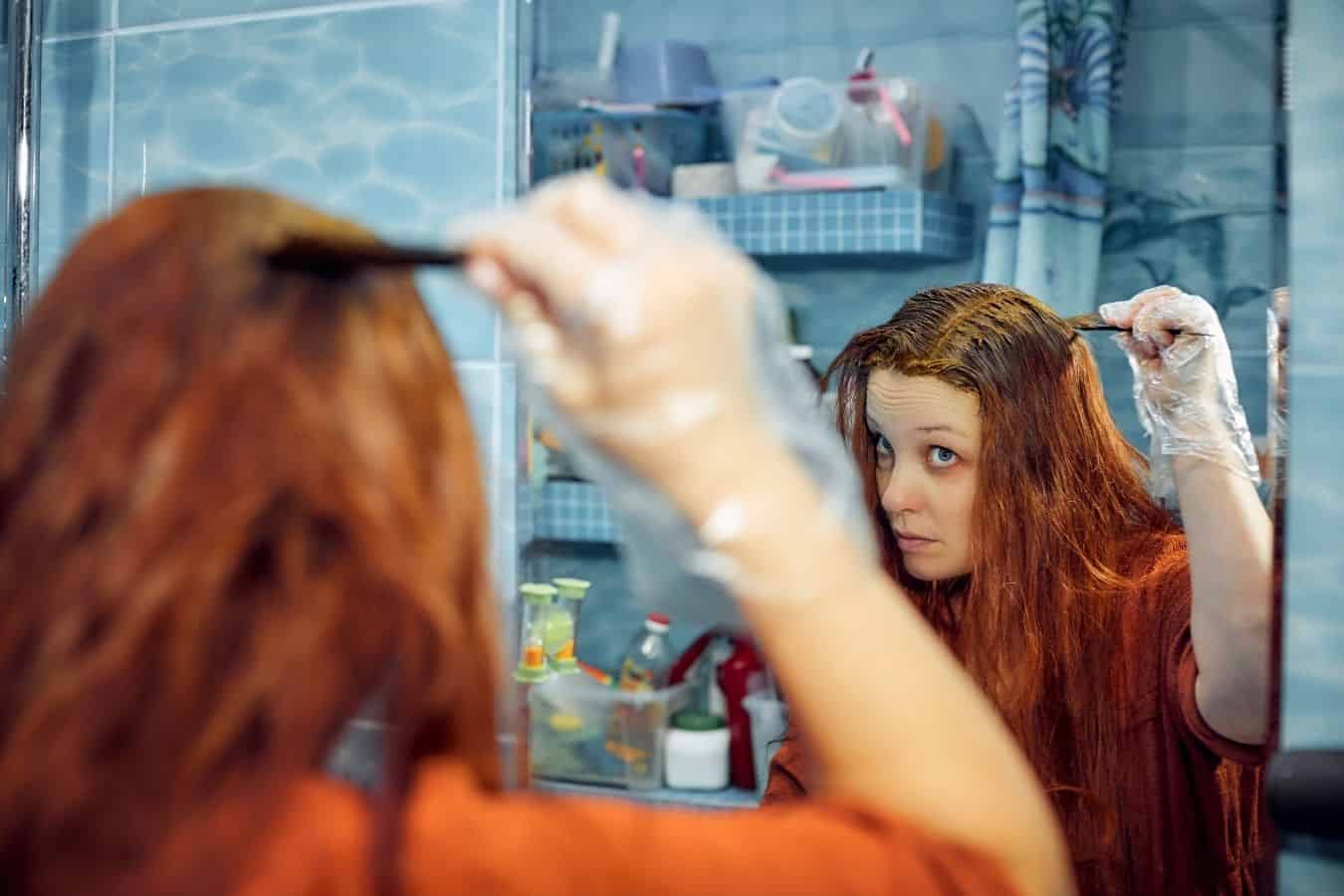
If you are into styling your hair often and subject your hair to heat styling, Henna may not be a lucrative option. This is because Henna undergoes a slight color change in how it appears when you use heat styling.
For those who straighten their hair every day or often enough, there might be a very apparent color change, which may not be too appealing. This is why it is advisable to avoid using Henna if you prefer heat styling.
Conclusion
For those who love the predictability factor, Henna doesn’t make the cut. While it is a good natural alternative to conventional hair dyes, it does have its own set of disadvantages. If you are planning to experiment with Henna, you must be fully aware of its disadvantages before you get down and dirty with it.
Henna is an effective hair color, but it has its limitations in terms of even color distribution; it can be messy and smelly and also affects the quality of your hair. It may strengthen your hair, but it also gets frizzy. Curl loss is also a potential red flag for those who love their curls.
It is advisable to choose good quality henna products in case you still choose to go ahead with a more natural variant.
Frequently Asked Questions
Will Henna Damage My Hair?
Good quality henna does not damage your hair; in fact, in fact, it strengthens it. However, it is known to give your hair a more dry and frizzy look. In terms of styling, such as reapplying another color or heat styling, Henna may not be recommended as it doesn’t fare well in these aspects.
Does Henna Make My Hair Thicker?
Henna is known to condition your hair; it also has the effect of strengthening your hair. This protective property helps you get stronger and thicker hair. It is also known to restore natural hair pH balance, thus also being beneficial for the hair and scalp.

